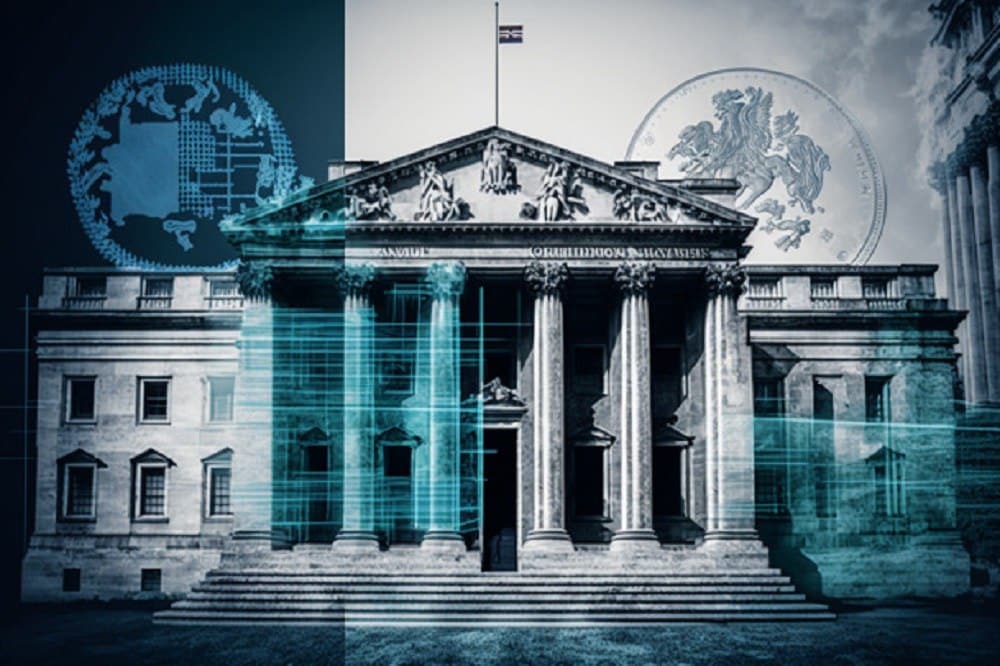
Bank of England Completes CBDC’s Distributed Ledger Technology Pilot Testing
The Bank of England (BoE), in collaboration with the London-based Bank for International Settlements (BIS), has completed experimenting with central bank digital currency (CBDC). The pilot tests Project Meridian involved an assessment of distributed ledger technology’s (DLT) positioned in the apex bank settlement system.
The project team utilized the BoE real-time gross settlement (RTGS) technology and its land registry to determine whether the digital currency could be used in purchasing properties such as houses. The transaction involved a financial institution and a legal entity tasked to represent the buyer or even the property owner.
Process for Distributed Ledger Technology Pilot Testing
An official publication dated April 19 on the BIS webpage demonstrated that the firm partnered with the BoE for CBDC pilot tests. The publication involved a 44-page report illustrating the procedures the financial institutions utilized when using the DLT technologies to close the sale plan of houses located in Wales and others parts of England.
The DLT has integrated the synchronization system linked to the RTGS through an application programming interface (API). The development on the synchronization network aimed at ensuring that funds are transferred after the house had changed ownership.
The API feature ensures that the transaction complies with international financial messaging requirements. Additionally, the API platform bolsters the interoperability of the RTGS system and synchronization software.
Integrating the two softwares aims to minimize the operation cost, risks, and average waiting time. Also, the API feature exhibited the enormous potential to ease the message transfer to other asset groups. This characteristic has inspired the BoE to adopt the API system before launching the RTGS system in 2024.
A scrutiny of the April 19 report demonstrated that Project Meridian aimed to develop a digital currency settlement system. The report mentioned the benefits of the integrated software in improving the settlement system’s performance.
The synchronization technology aims at expediting the development of innovative wholesale payment platforms. Remarkably, the synchronization network was adopted to support the new payment methods to use the CBDC.
Overview of Project Meridian Report
The report has captured the “Political and operational considerations” section that highlights additional characteristics of the settlement system. In the long run, the team behind the CBDC will task the network service providers to develop a unique identity verification element.
Also, the operation of the synchronization network might require the RTGS platform to extend its operating hours. The settlement system will undergo further development to improve compliance with European law.
Failure to improve the performance of the new settlement system might expose the user to the risks in asset ownership and misappropriation of funds by banks. The report mentioned the need for monitoring the new system to prevent development ethical and legal concerns.
Initially, at the primary development of the CBDC, the BIS conducted Project Icebreaker in March. The project involved the examination of global retail and remittance payment methods.
The BIS team worked closely with the Central Bank of Norway, Israel, and Sweden. Before the Project Icebreaker trials, the BoE team had tested the CBDC performance in cross-border transactions.
The execution of the DLT testing came when the regulators were reviewing the Financial Service Market (FSM) Bill. This Bill outlines the conditions and procedures for stablecoin payments and issuance.
The Bill was presented at the House of the Lords on March 23, and the legislators allowed the members to contribute their valuable input. The final draft of the FSM Bill will be presented to the House of Common and House of the Lord for legislative approval.




